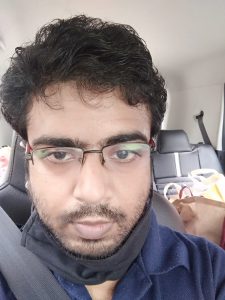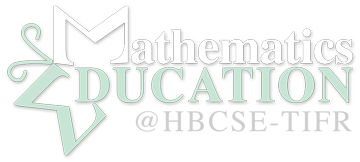
I am trained in Mathematics, specifically in an area called Algebraic Geometry, where one worries about geometric properties of abstract mathematical concepts such as curves, surfaces, higher dimensional spaces, and so on. Currently, my research interests mainly involve the questions of mathematics, science, and technology education and what it means for the human social existence. Like any other domain of the human social existence, education is thus also a historic site of conflict and crisis between contending social, political, and epistemic worldviews. The long history of such conflict operates not just at a macroscopic level but is regularly recreated through our everyday actions and interactions with each other, with institutions, with things, and with nature. I am trying to document these conflicts, in order to understand how this works to shape and reshape not only the social value systems but also the nature of the subjects (math, science, technology) themselves.
Some basic questions I am trying to understand are, for example – ‘Why do people want to learn mathematical sciences?’, ‘Why do the rulers want people to learn mathematical sciences?’, ‘How did numbers become more important than real people?’, What are the politics of rigor, abstraction, speculation and rule-following?’, ‘What happens when we have a static science for a dynamic reality?’, ‘What do we mean by education?’, ‘What are the differences and similarities between factories and schools?’, ‘What does the current and future technology regime mean for the idea of education?’, ‘Why do we have unemployed teachers wanting to teach, and teacherless students wanting to learn, but still a crumbling education system?’, ‘Whose problem is really ‘the problem called math education’?’, ‘Why do we worship textbooks? Why do we worship π? Why do we worship money?’, ‘What is technology, and what is it’s relation with human work and action?’, and so on.
The purpose is to not just understand what is going on, but also to open up collaborative spaces and practices aimed at rethinking and reimagining the meaning of education, and the role of the ‘educators’. The key challenge is to collectively reimagine learning and research that are rooted in the values of care and freedom as social relations. In a world that is clearly falling apart on multiple fronts – social, economic, political, as well as ecological.
Education
- Ph.D., Mathematics, Brandeis University, MA, USA. (2011)
- Ph.D. Dissertation Title: Supersingular K3 Surfaces in Characteristic 3.
- B.Math. (Hons.), Indian Statistical Institute, Bangalore, India. (2006)
Research
- On the Käehler metrics over Symd(X), with Anilatmaja Aryasomayajula, Archana Morye, Indranil Biswas, Journal of Geometry and Physics (2016).
- Elliptic Fibrations on Supersingular K3 Surface with Artin Invariant 1 in Characteristic 3. In: Aryasomayajula A., Biswas I., Morye A.S., Parameswaran A.J. (eds) Analytic and Algebraic Geometry. Springer, Singapore (2017).
- Brauer group of the moduli spaces of stable vector bundles of fixed determinant over a smooth curve, with Indranil Biswas, Bulletin des Sciences Mathématiques (2018).
- The Uncivil and De-Institutionalising Labour Relations of Accumulation through Disuse: The Case of Brick Kiln Industry in Telangana, with G. Vijay, to be published in Structural Transformation and Dynamics of Labour Mobility, Springer Publications (2017).
Other works
- Co-edited Proceedings of epiSTEME8 International Conference to review research in Science, Technology and Mathematics Education, with KK Mashood, Chaitanya Ursekar, Harita Raval and Santanu Dutta (2020).
